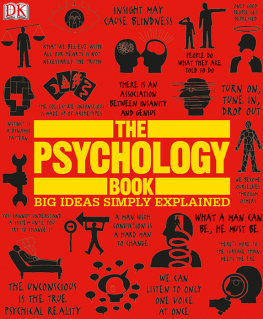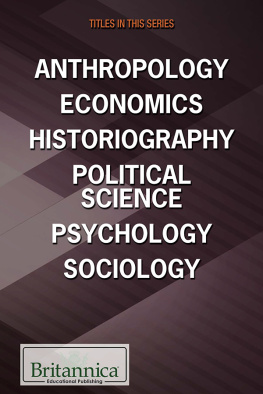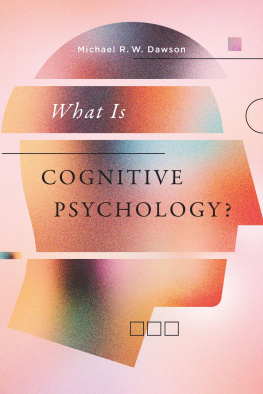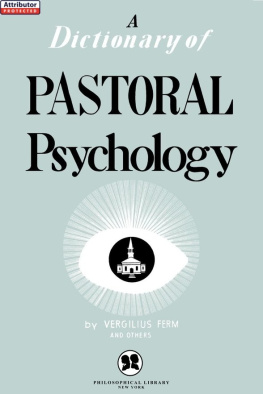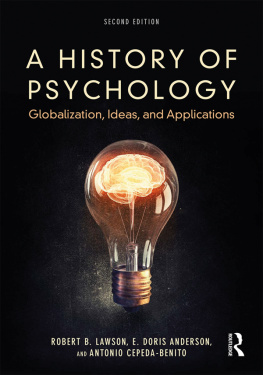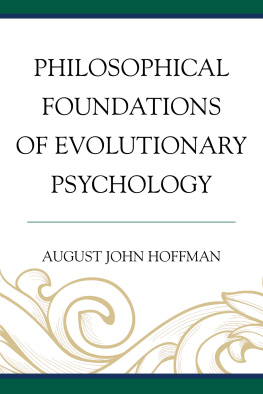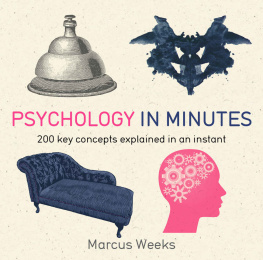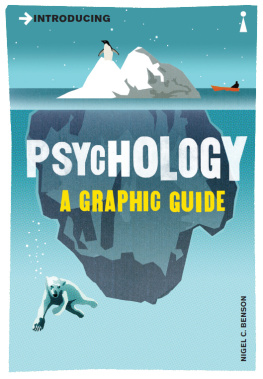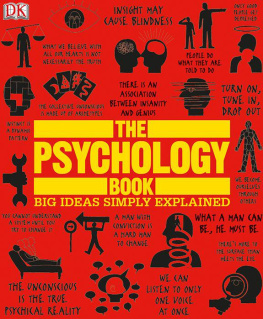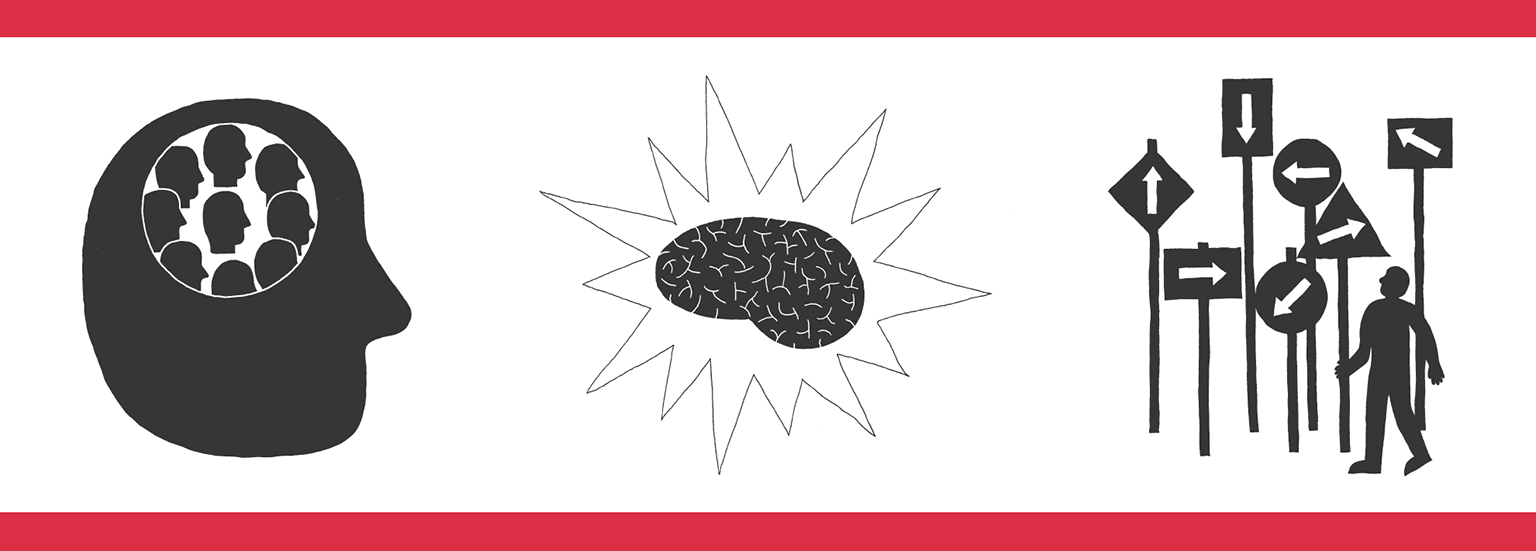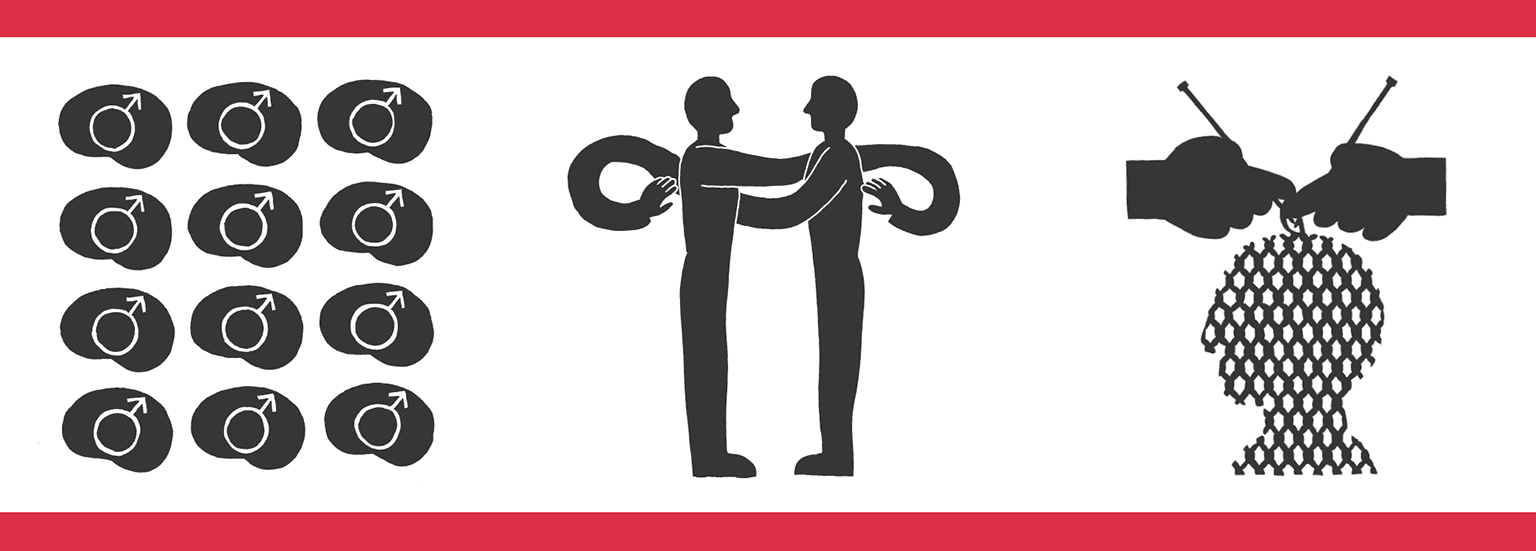

INTRODUCTION
Among all the sciences, psychology is perhaps the most mysterious to the generalpublic, and the most prone to misconceptions. Even though its language and ideas haveinfiltrated everyday culture, most people have only a hazy idea of what the subject isabout, and what psychologists actually do. For some, psychology conjures up images ofpeople in white coats, either staffing an institution for mental disorders or conductinglaboratory experiments on rats. Others may imagine a man with a middle-European accentpsychoanalyzing a patient on a couch or, if film scripts are to be believed, plotting toexercise some form of mind control.
Although these stereotypes are an exaggeration, some truth lies beneath them. It isperhaps the huge range of subjects that fall under the umbrella of psychology (and thebewildering array of terms beginning with the prefix psych-) that creates confusionover what psychology entails; psychologists themselves are unlikely to agree on a singledefinition of the word. Psychology comes from the ancient Greek psyche, meaning soul or mind, and logia, a study or account, which seems to sum up thebroad scope of the subject, but today the word most accurately describes the science ofmind and behavior.
The new science
Psychology can also be seen as a bridge between philosophy and physiology. Wherephysiology describes and explains the physical make-up of the brain and nervoussystem, psychology examines the mental processes that take place within them and howthese are manifested in our thoughts, speech, and behavior. Where philosophy isconcerned with thoughts and ideas, psychology studies how we come to have them andwhat they tell us about the workings of our minds.
All the sciences evolved from philosophy, by applying scientific methods tophilosophical questions, but the intangible nature of subjects such asconsciousness, perception, and memory meant that psychology was slow in making thetransition from philosophical speculation to scientific practice. In someuniversities, particularly in the US, psychology departments started out as branchesof the philosophy department, while in others, notably those in Germany, they wereestablished in the science faculties. But it was not until the late 19th centurythat psychology became established as a scientific discipline in its ownright.
The founding of the worlds first laboratory of experimental psychology by WilhelmWundt at the University of Leipzig in 1879 marked the recognition of psychology as atruly scientific subject, and as one that was breaking new ground in previouslyunexplored areas of research. In the course of the 20th century, psychologyblossomed; all of its major branches and movements evolved. As with all sciences,its history is built upon the theories and discoveries of successive generations,with many of the older theories remaining relevant to contemporary psychologists.Some areas of research have been the subject of study from psychologys earliestdays, undergoing different interpretations by the various schools of thought, whileothers have fallen in and out of favor, but each time they have exerted asignificant influence on subsequent thinking, and have occasionally spawnedcompletely new fields for exploration.
The simplest way to approach the vast subject of psychology for the first time isto take a look at some of its main movements, as we do in this book. These occurredin roughly chronological order, from its roots in philosophy, through behaviorism,psychotherapy, and the study of cognitive, social, and developmental psychology, tothe psychology of difference.
"Psychology has a long past, but only a short history."
Hermann Ebbinghaus
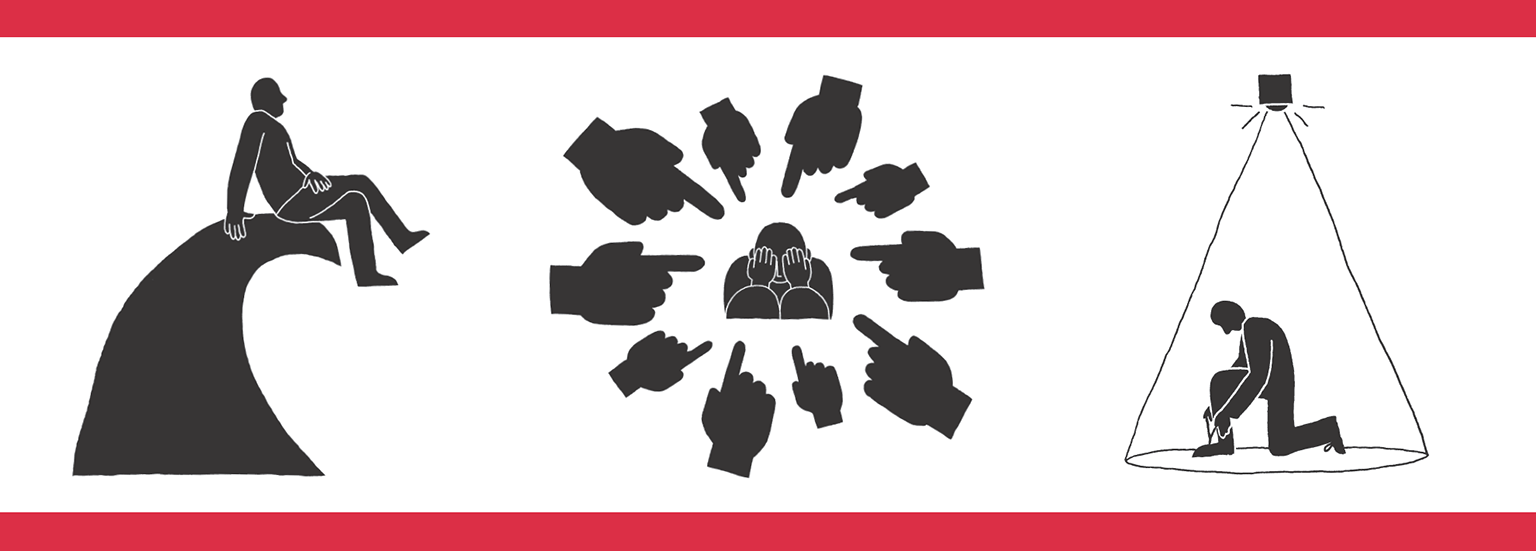
Two approaches
Even in its earliest days, psychology meant different things to different people.In the US, its roots lay in philosophy, so the approach taken was speculative andtheoretical, dealing with concepts such as consciousness and the self. In Europe,the study was rooted in the sciences, so the emphasis was on examining mentalprocesses such as sensory perception and memory under controlled laboratoryconditions. However, even the research of these more scientifically orientedpsychologists was limited by the introspective nature of their methods: pioneerssuch as Hermann Ebbinghaus became the subject of their own investigations,effectively restricting the range of topics to those that could be observed inthemselves. Although they used scientific methods and their theories laid thefoundations for the new science, many in the next generation of psychologists foundtheir processes too subjective, and began to look for a more objectivemethodology.
In the 1890s, the Russian physiologist Ivan Pavlov conducted experiments that wereto prove critical to the development of psychology in both Europe and the US. Heproved that animals could be conditioned to produce a response, an idea thatdeveloped into a new movement known as behaviorism. The behaviorists felt that itwas impossible to study mental processes objectively, but found it relatively easyto observe and measure behavior: a manifestation of those processes. They began todesign experiments that could be conducted under controlled conditions, at first onanimals, to gain an insight into human psychology, and later on humans.
The behaviorists studies concentrated almost exclusively on how behavior isshaped by interaction with the environment; this stimulusresponse theory becamewell known through the work of John Watson. New learning theories began to spring upin Europe and the US, and attracted the interest of the general public.
However, at much the same time as behaviorism began to emerge in the US, a youngneurologist in Vienna started to develop a theory of mind that was to overturncontemporary thinking and inspire a very different approach. Based on observation ofpatients and case histories rather than laboratory experiments, Sigmund Freudspsychoanalytic theory marked a return to the study of subjective experience. He wasinterested in memories, childhood development, and interpersonal relationships, andemphasized the importance of the unconscious in determining behavior. Although hisideas were revolutionary at the time, they were quickly and widely adopted, and thenotion of a talking cure continues within the various forms of psychotherapytoday.
"The first fact for us then, as psychologists, is that thinking of some sortgoes on."
William James
New fields of study
In the mid-20th century, both behaviorism and psychoanalysis fell out of favor,with a return to the scientific study of mental processes. This marked the beginningof cognitive psychology, a movement with its roots in the holistic approach of theGestalt psychologists, who were interested in studying perception. Their work beganto emerge in the US in the years following World War II; by the late 1950s,cognitive psychology had become the predominant approach. The rapidly growing fieldsof communications and computer science provided psychologists with a useful analogy;they used the model of information processing to develop theories to explain ourmethods of attention, perception, memory and forgetting, language and languageacquisition, problem-solving and decision-making, and motivation.

